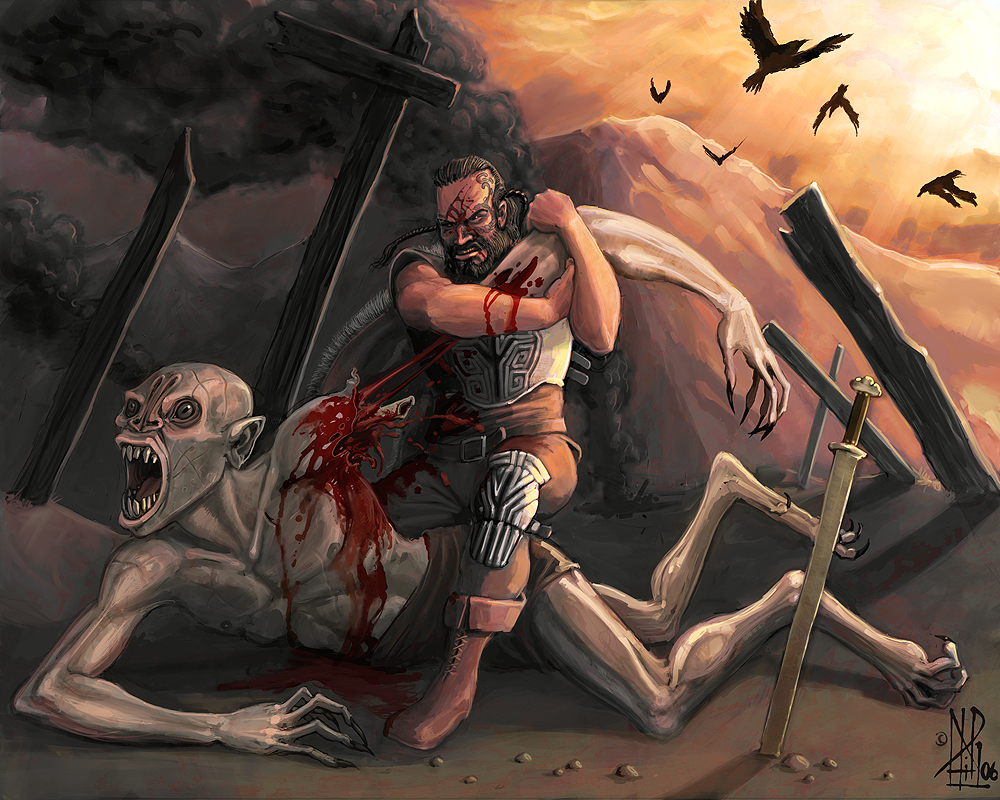I’m very intrigued by the definition of a monster. The
Oxford Dictionary describes a monster
as:
Something
extraordinary or unnatural; a malformed animal or plant; a fetus, neonate, or
individual with a gross congenital malformation, usually of a degree
incompatible with life; a person of repulsively unnatural character, or
exhibiting such extreme cruelty or wickedness as to appear inhuman; a monstrous
example of evil, a vice, etc.; an ugly or deformed person, animal, or thing.
In the epic poem Beowulf,
Grendel easily fits this definition. Grendel is described as “a powerful demon”
(86), “a fiend out of hell” (100), and “[dwells] in misery among the banished
monsters, Cain’s Clan, whom the Creator had outlawed and condemned as outcasts”
(106-107).
Every description in Beowulf seems to focus on Grendel’s
character, not his appearance. There is no description of what he looks like,
only how he acts. He acts a fiend, he is God-cursed, and he is a miserable
wretch. Not once does it say if he is covered in hair, lumpy or bumpy, or a
creepy creature. He is a monster to these people because of his inhuman
actions. Because he dwells in the bogs and murders and eats people he is a
monster; which fits the Oxford definition “exhibiting extreme cruelty or
wickedness.”


